Blog
Show
Blog Articles
January 20 2026
January 7 2026
December 17 2025
December 3 2025
November 18 2025
November 6 2025
October 22 2025
October 8 2025
September 24 2025
September 9 2025
August 18 2025
August 5 2025
July 29 2025
July 8 2025
June 25 2025
June 10 2025
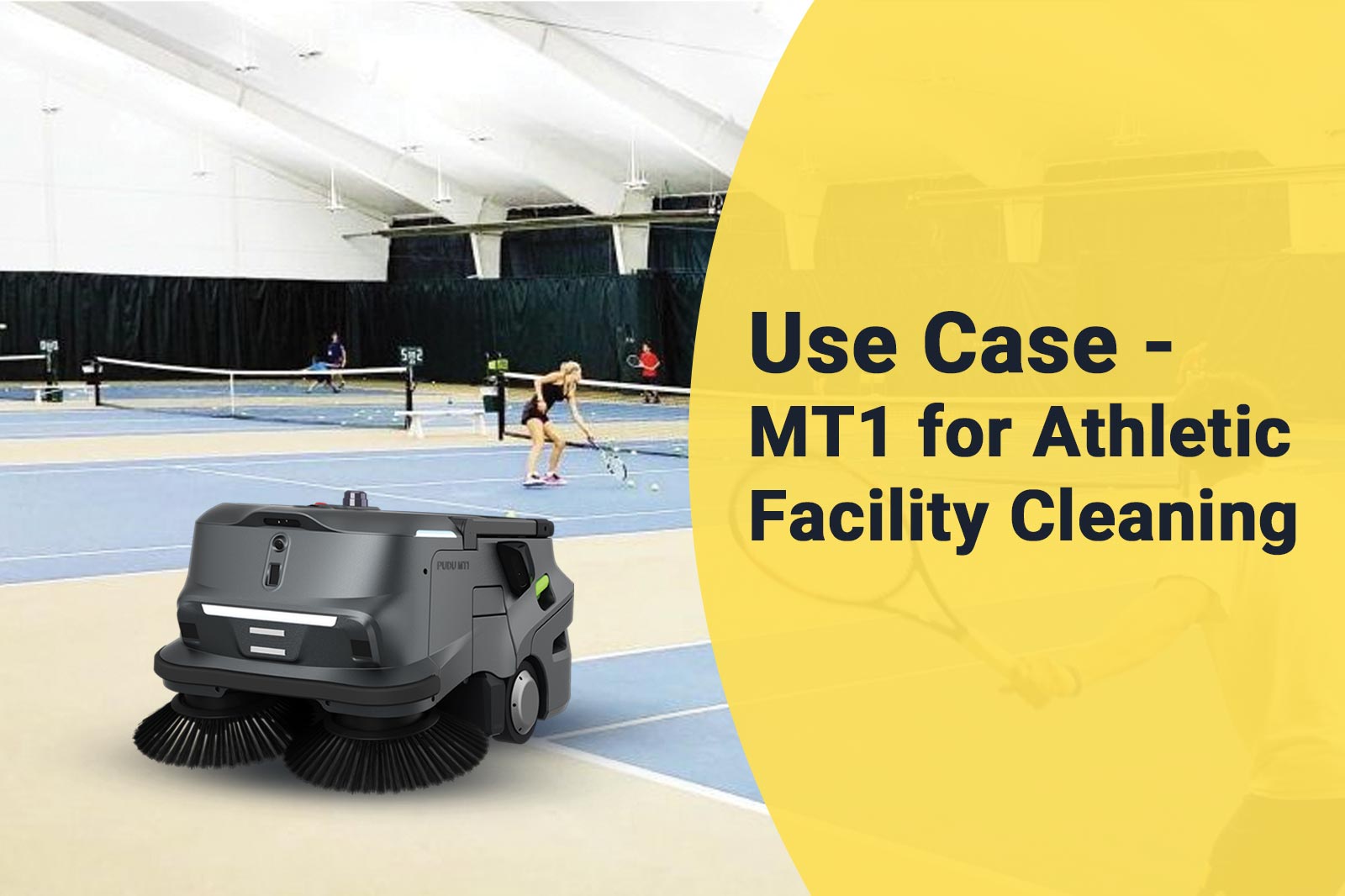
May 20 2025
April 15 2025
April 3 2025
March 19 2025
March 12 2025
March 4 2025
February 18 2025
February 5 2025
January 29 2025
THE ROI OF CLEAN
How Autonomous Robots Help Facilities Stretch Tight Budgets
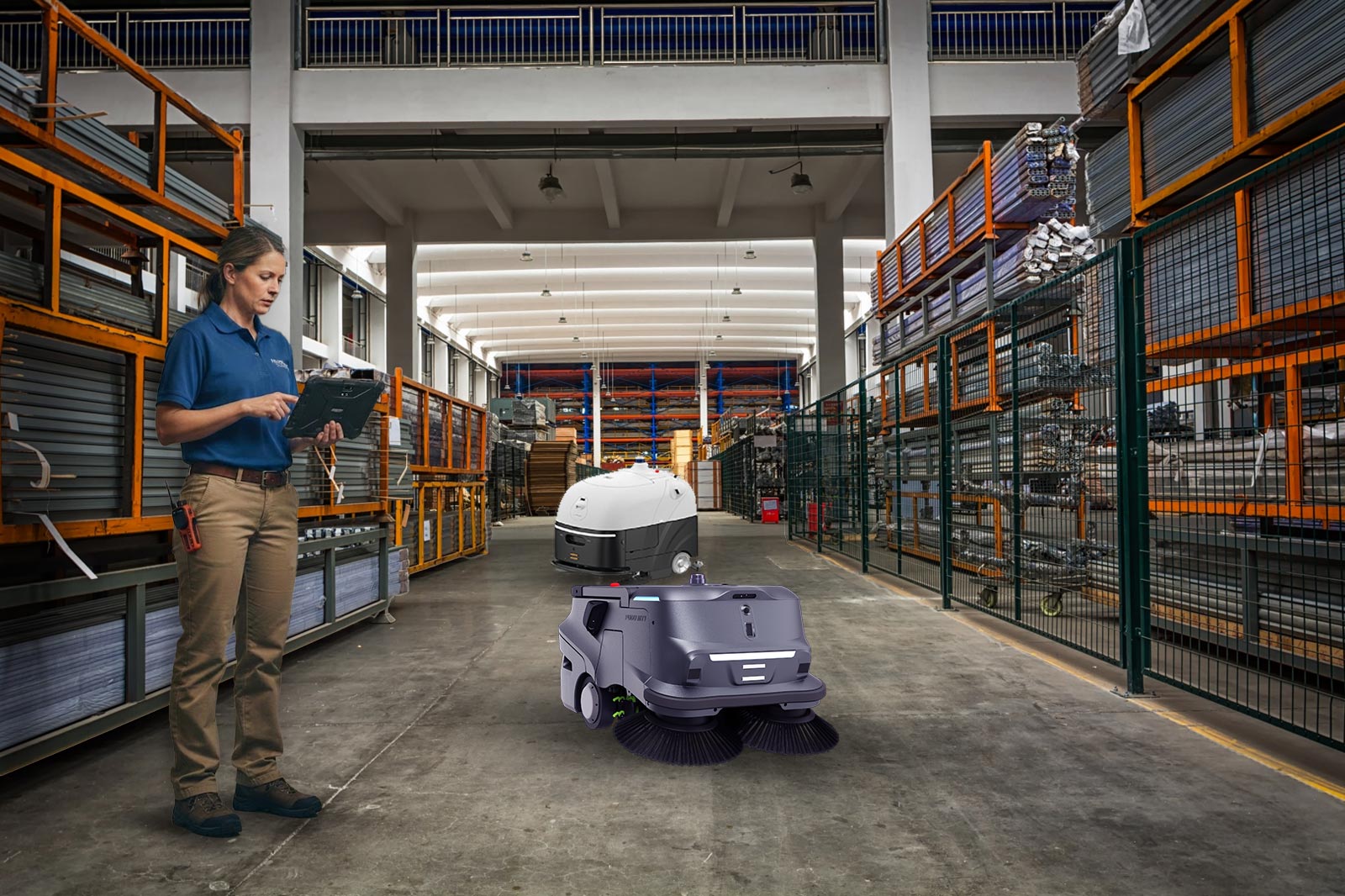
As budgets tighten and operational demands increase across facilities of all types, leaders are being asked a familiar question: How can we do more with less? It’s a question that resurfaces every year, but in 2026 it carries an extra sense of urgency. Inflationary pressures, persistent labor shortages, and rising expectations from stakeholders mean that facility teams must find smarter, more efficient approaches to delivering consistent results with finite resources.
January 7 2026
ROBOTICS TRENDS TO WATCH IN 2026
Automation Becomes Key to Efficient Facilities Management
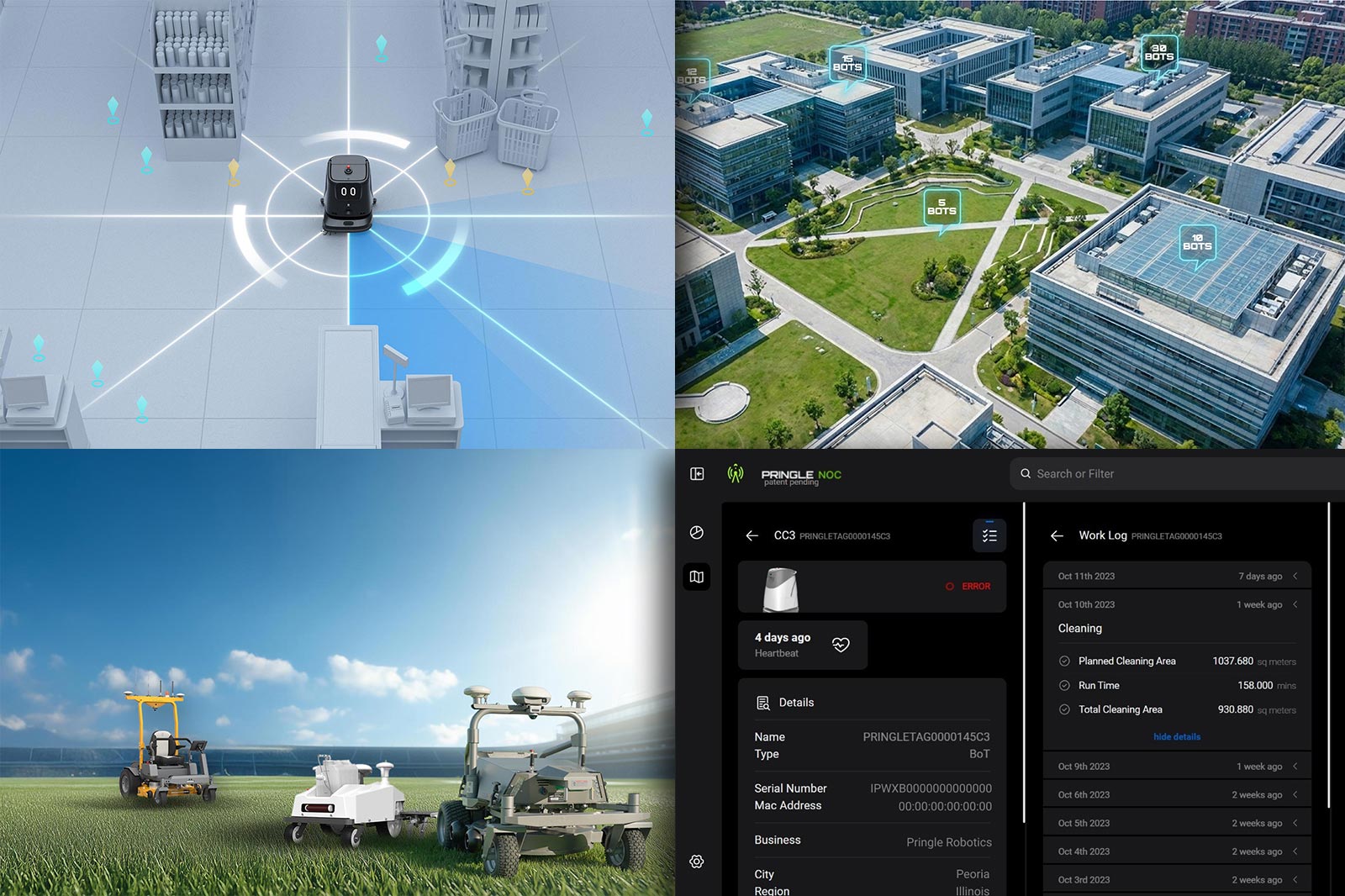
As we enter 2026, facility leaders across industries look out on a landscape that poses both familiar challenges and exciting opportunities. While they’re faced with the ongoing pressures of labor shortages compounded by rising cleanliness and safety expectations, they are also offered true solutions to these and other concerns through robotics and automation.
Let’s look at some key trends that we see impacting facilities management automation in 2026.
December 17 2025
AUTOMATING FACILITY TURF CARE
Transforming Large-Scale Green Space Management With Robots
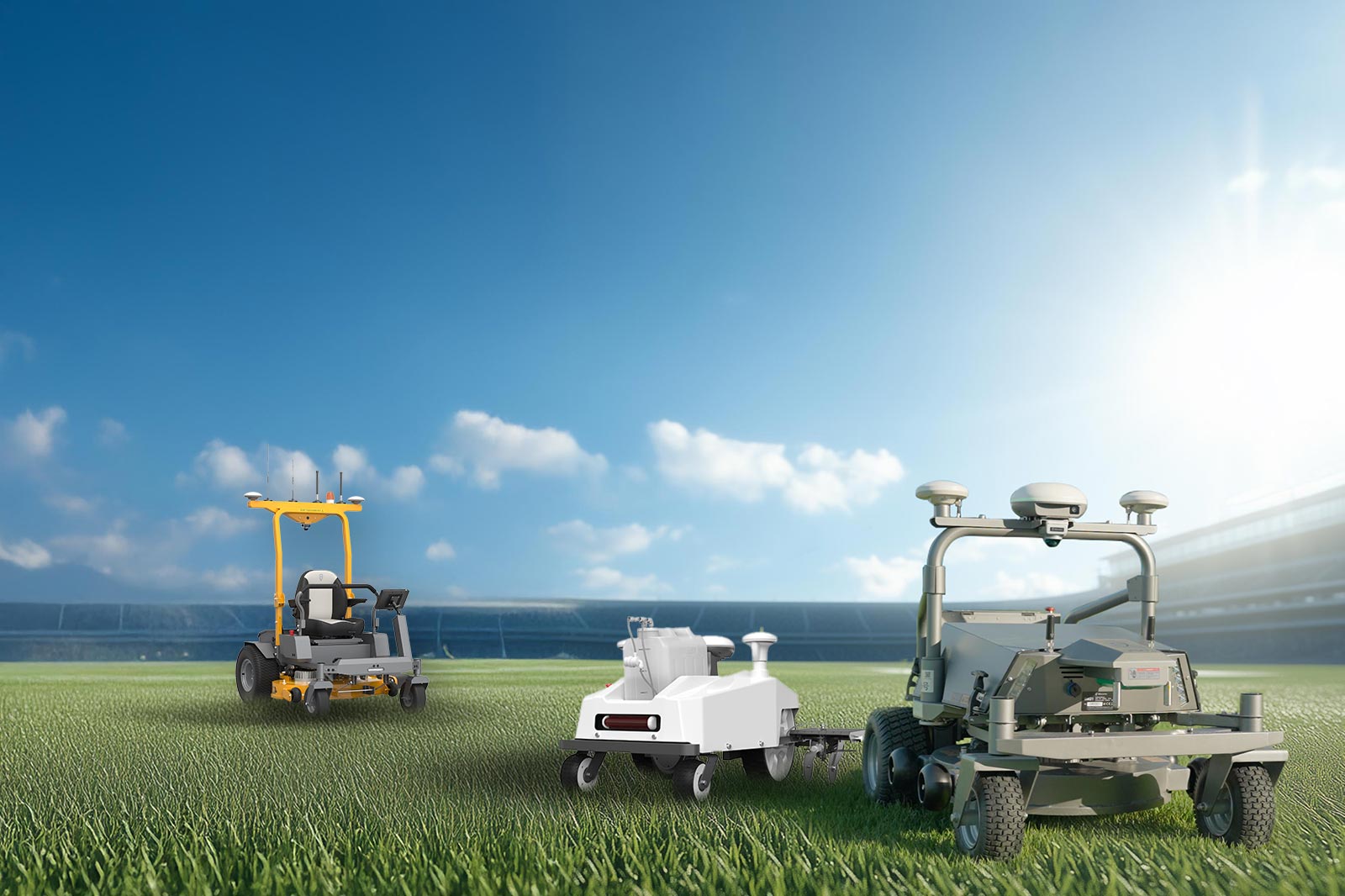
For decades, maintaining large expanses of turf—athletic fields, municipal parks, sprawling campuses, golf courses, and corporate grounds—has required significant labor, fuel, and equipment investment. Now that model is beginning to shift. Automation has already reshaped indoor facilities maintenance, and now it’s rapidly gaining traction in outdoor turf management.
December 3 2025
OPERATIONAL EFFICIENCY AT SCALE
How Facilities Can Reap the Full Benefits of Cleaning Automation
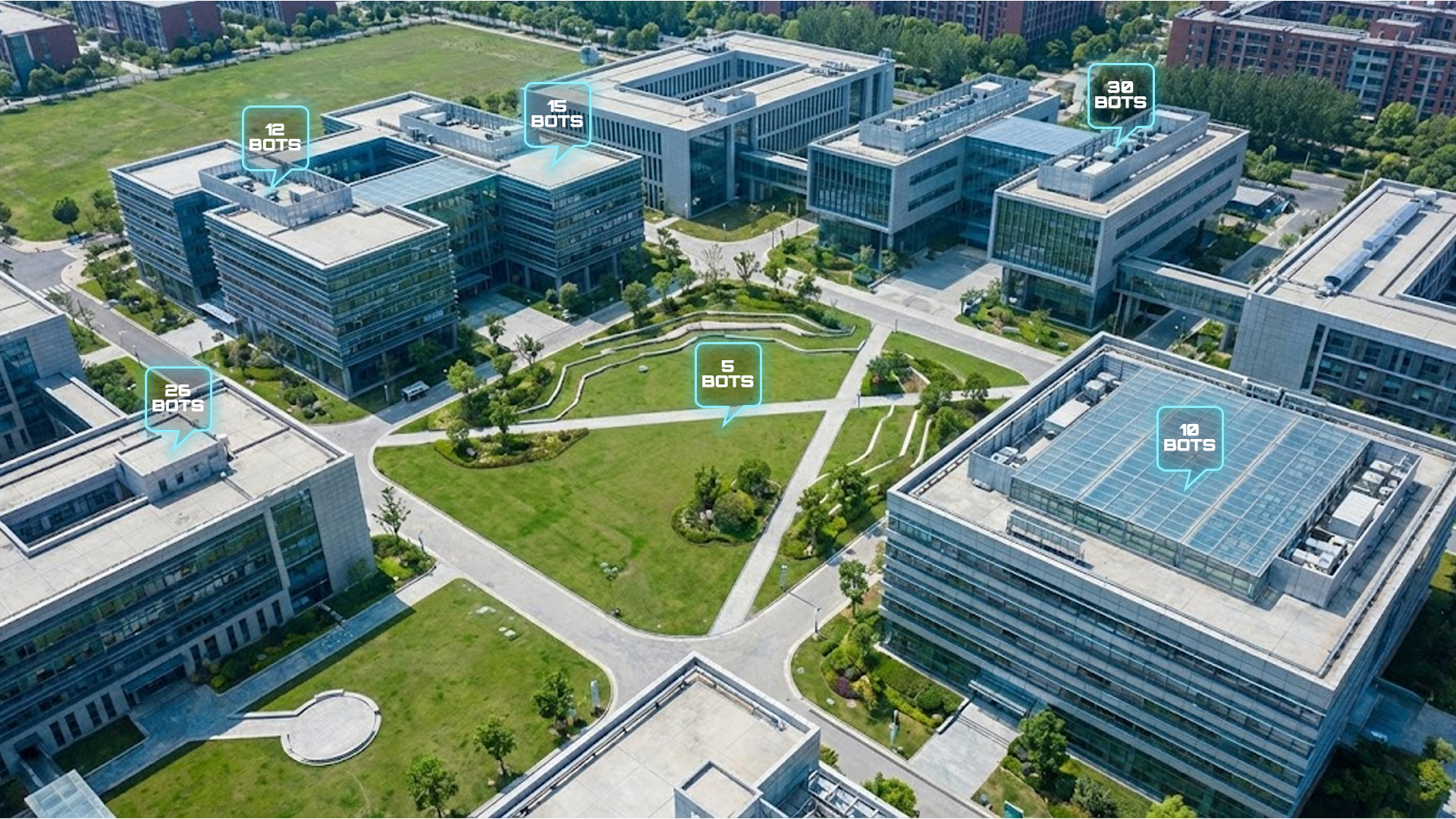
Large campuses, logistics centers, hospital networks, retail chains, and major corporate facilities are increasingly discovering that deploying robot fleets produces results that simply aren’t achievable with isolated, one-off automation. Scaling robotics across an entire organization creates new efficiencies, unlocks enterprise-level insights, and reshapes how operations teams think about cleanliness, staffing, and long term planning.
November 18 2025
AI IS SUPERCHARGING AUTONOMOUS FLOOR CLEANING ROBOTS
How it Will Change Facilities Management
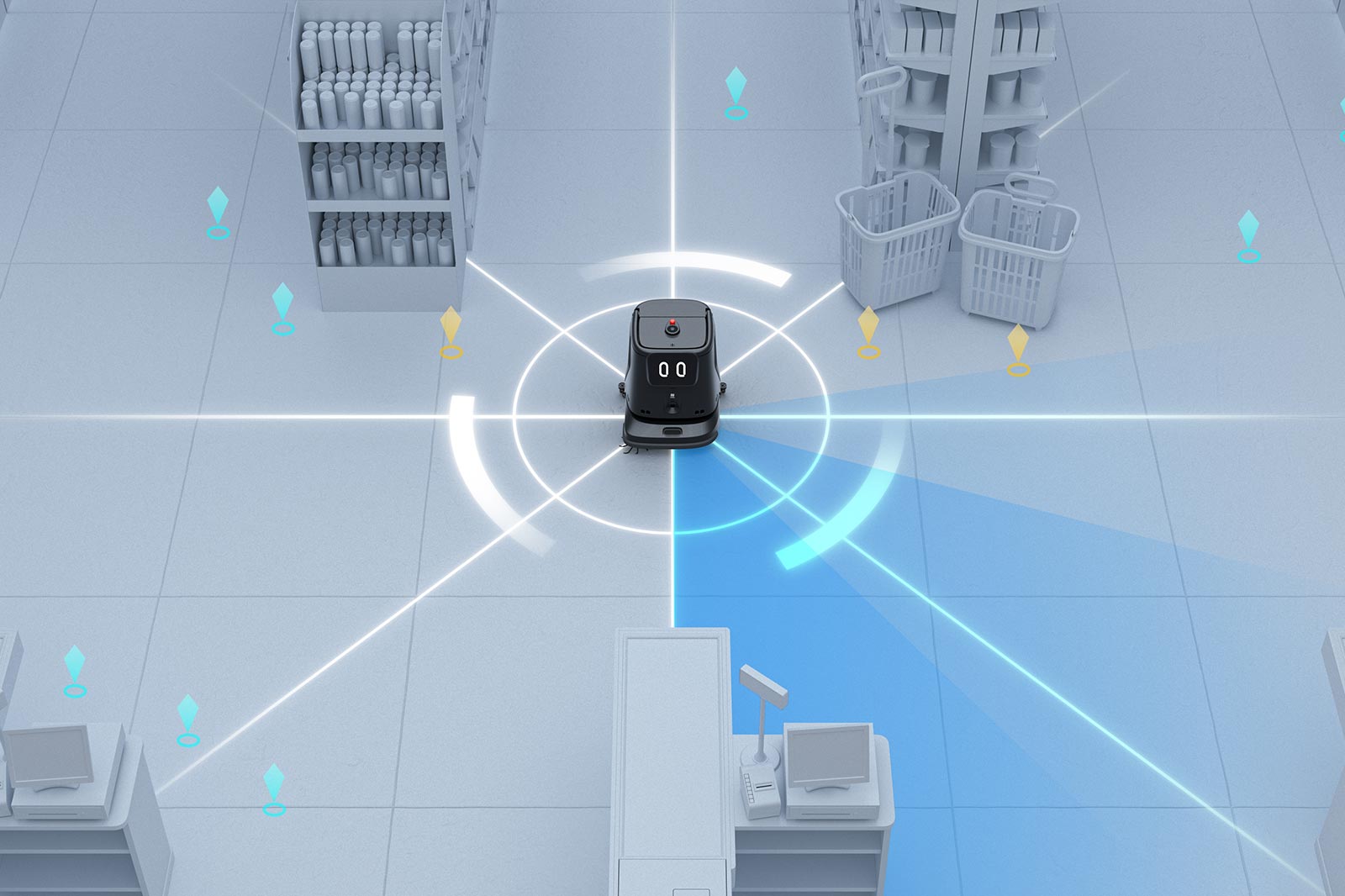
<Image Courtesy Pudu Robotics>
Autonomous floor cleaning robots are already transforming the way many facilities handle cleaning operations. They reduce labor demands, operate consistently, and help organizations maintain cleaner, safer environments with less effort. But until recently, most robotic floor cleaners followed a simple formula: map the space, follow preset routes, avoid obstacles, and repeat. Helpful? Undoubtedly! (And we should know, having deployed over 2,000 autonomous floor cleaning robots to customer sites across the country). But does the innovation stop there? Not even close. Now, thanks to rapid advancements in artificial intelligence, floor cleaning robots are evolving beyond static maps and preset routes. They’re becoming smarter, more adaptive, and even more operationally valuable as the newest models and prototypes integrate AI capabilities with already-proven reliability and cleaning power.
November 6 2025
ROBOTS AND LEGACY EQUIPMENT
Integrating Old and New Assets into a Unified Facility Management System
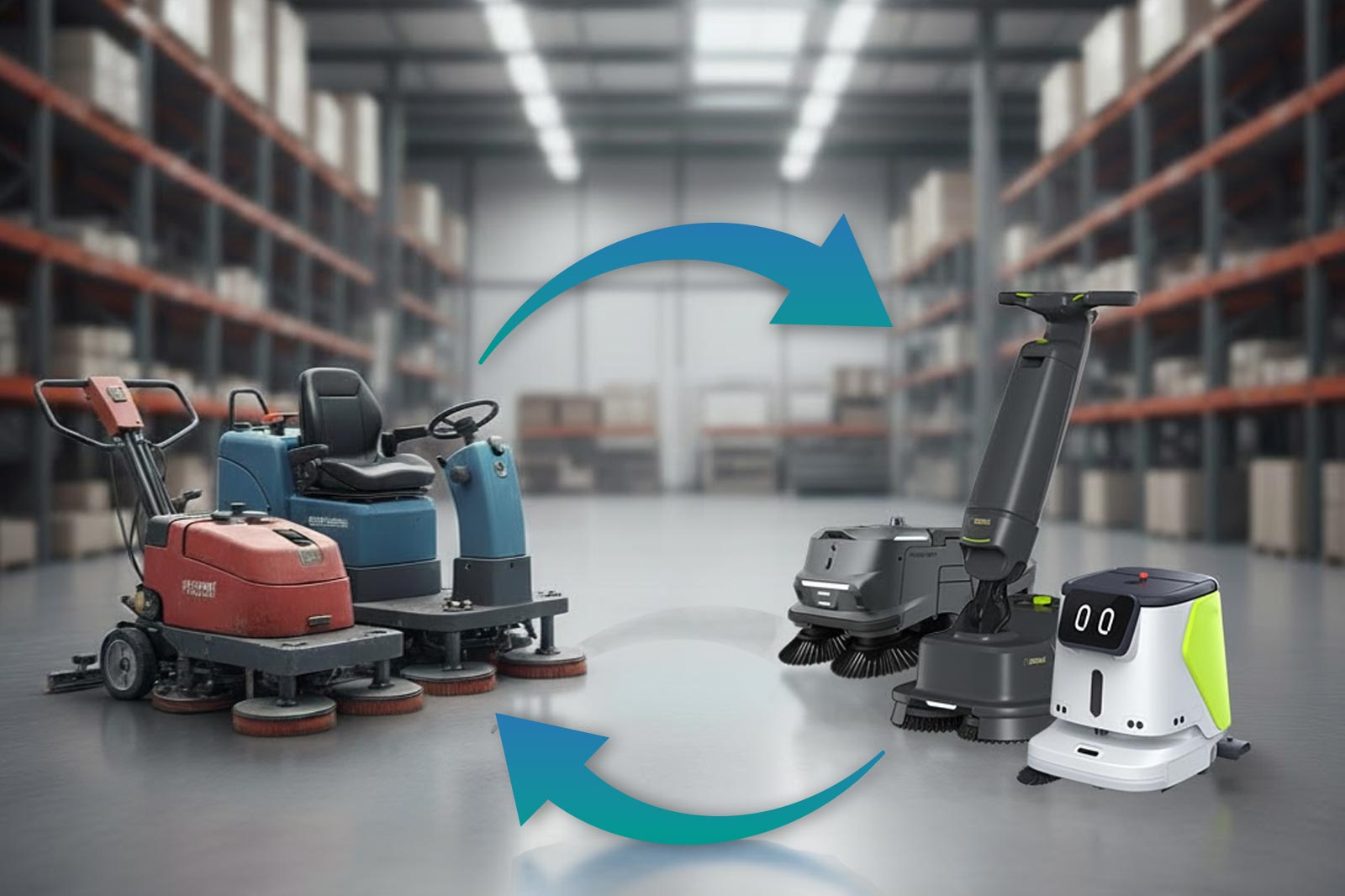
The shift towards automation in facility management is steady, but it isn’t happening overnight. While autonomous floor cleaning robots are transforming how facilities operate, many sites are in what we’ll call a “hybrid era”—incorporating robotic assets while also utilizing traditional equipment (ride-on scrubbers, vacuums, and manual tools) that has been in use for years. The challenge for many organizations is figuring out how to bridge the gap between these legacy assets and the smart, connected world of robotics and IoT.
October 22 2025
FROM DATA TO DECISIONS
Turning Facility Management Metrics Into Actionable Insights
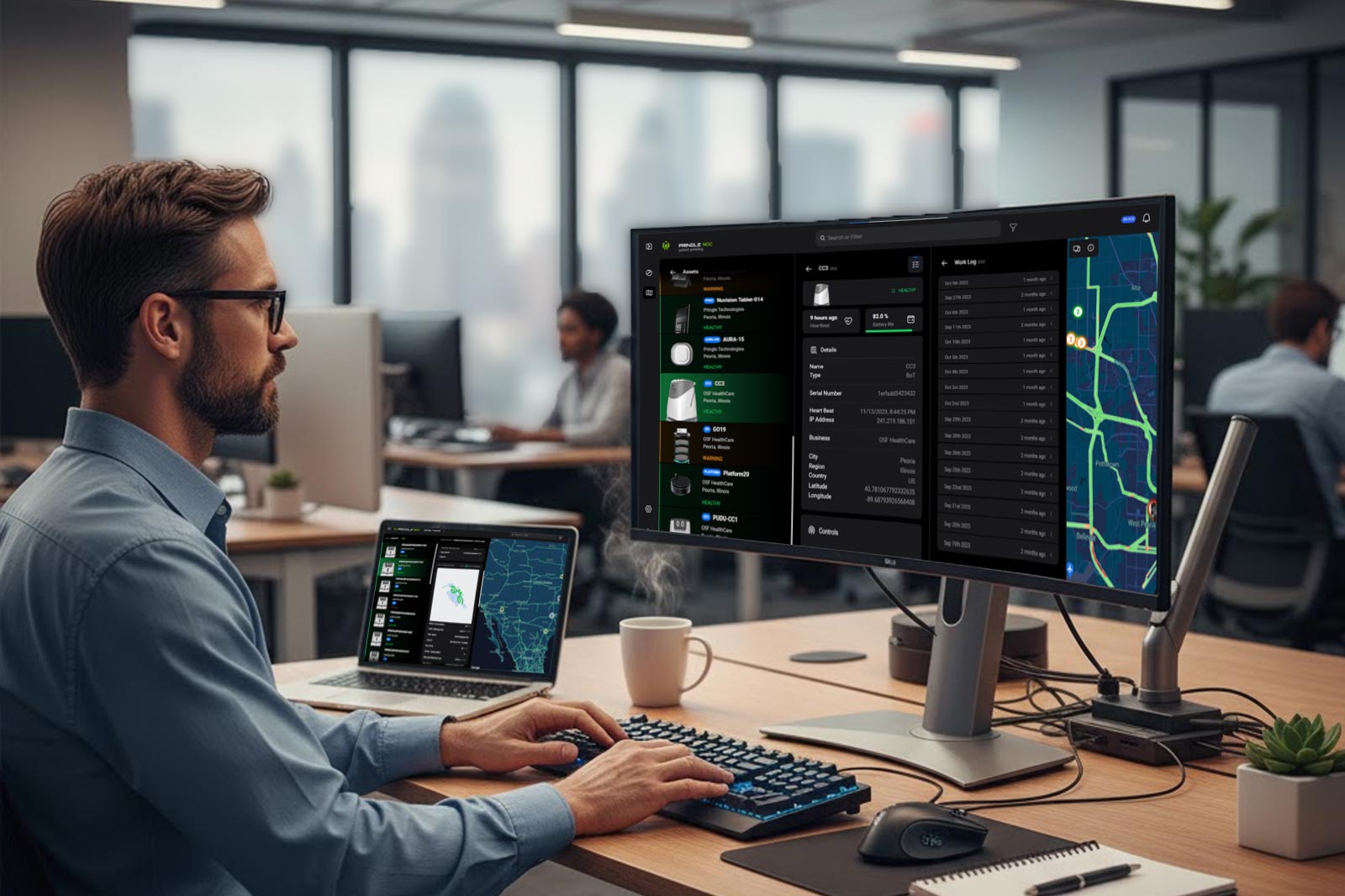
In modern facility management, the potential for useful data generation can be found around every corner. Autonomous floor cleaning robots generate worklogs and health status data; IoT sensors deliver foot-traffic, environmental, and building systems metrics; and task management platforms keep track of what custodial teams do and when. But raw data isn't enough on its own. The real value happens when those numbers are translated into insights—insights that equal smarter strategies, optimized resources, and real, measurable improvements.
October 8 2025
THE ALWAYS ON FACILITY
How Autonomous Robots Keep Up With 24/7 Operations
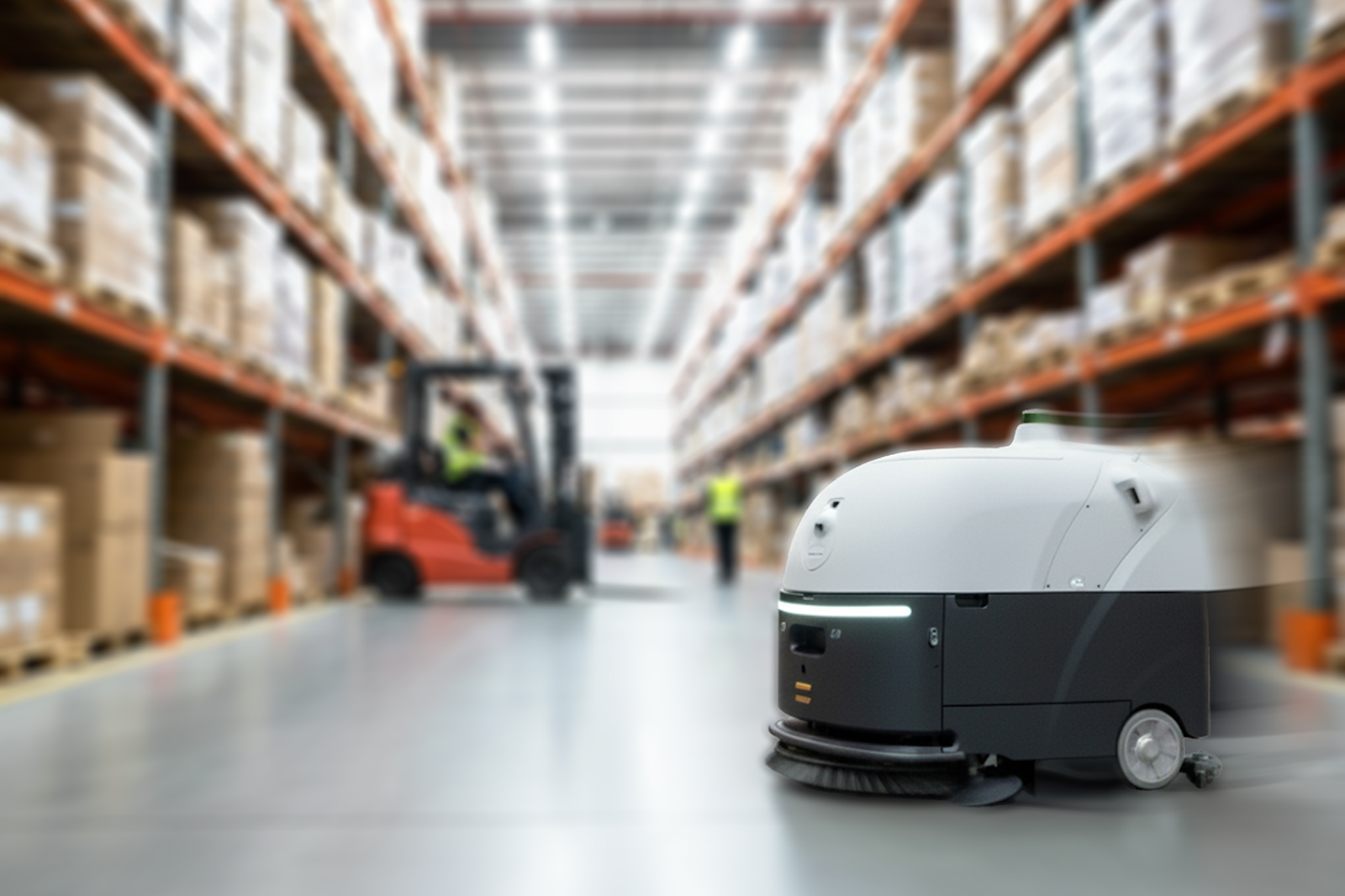
Some facilities never sleep. Hospitals, warehouses, airports, and distribution centers run around the clock. And when operations don’t stop, neither does the demand for cleanliness. Floors get dirty, spills happen, and safety hazards pop up at all hours. Traditionally, custodial teams in these environments faced an uphill battle—limited staff, tight budgets, and the pressure of constant demand. Autonomous floor cleaning robots are rewriting this script, making it possible to maintain spotless, safe floors without slowing down operations.
September 24 2025
BEYOND THE STANDALONE UNIT
Autonomous Floor Cleaning Robot Deployment at Scale
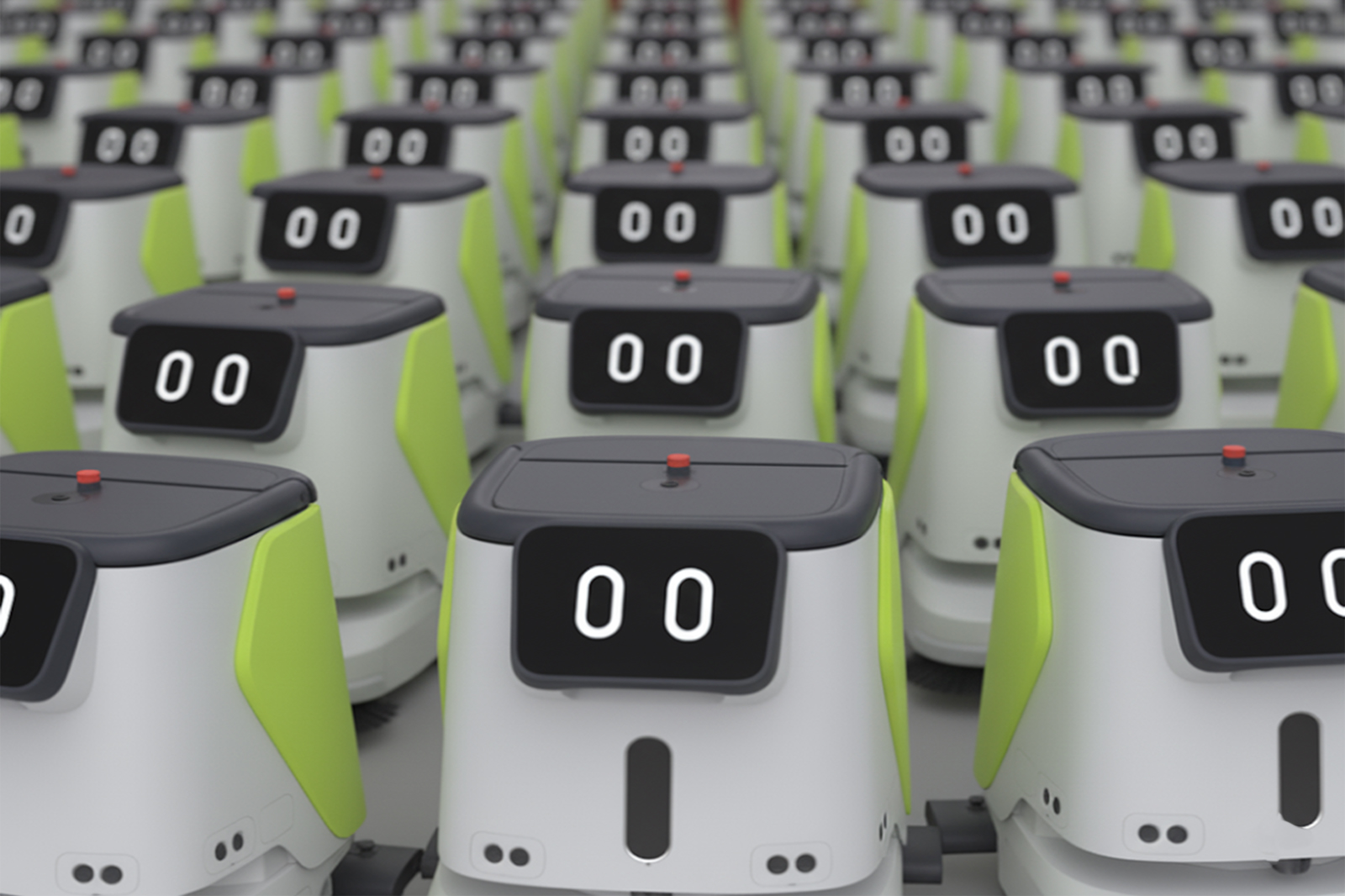
Autonomous floor cleaning robots are rapidly proving their value in facilities of every type, from hospitals to retail stores to distribution centers. For many organizations, the journey begins with a single unit deployed in one location. This “pilot robot” demonstrates proof of concept, showcases the technology’s capabilities, and begins to deliver measurable returns. That said, for larger facilities and companies with multiple locations, the true potential of robotic cleaning isn’t fully unlocked at the individual unit level. The real power of this technology emerges when robots are deployed at scale—not as isolated gadgets, but as an integral part of optimized operations.
September 9 2025
CLANKER OR HELPFUL TOOL?
How Floor Cleaning Robots Elevate the Role of Custodial Staff
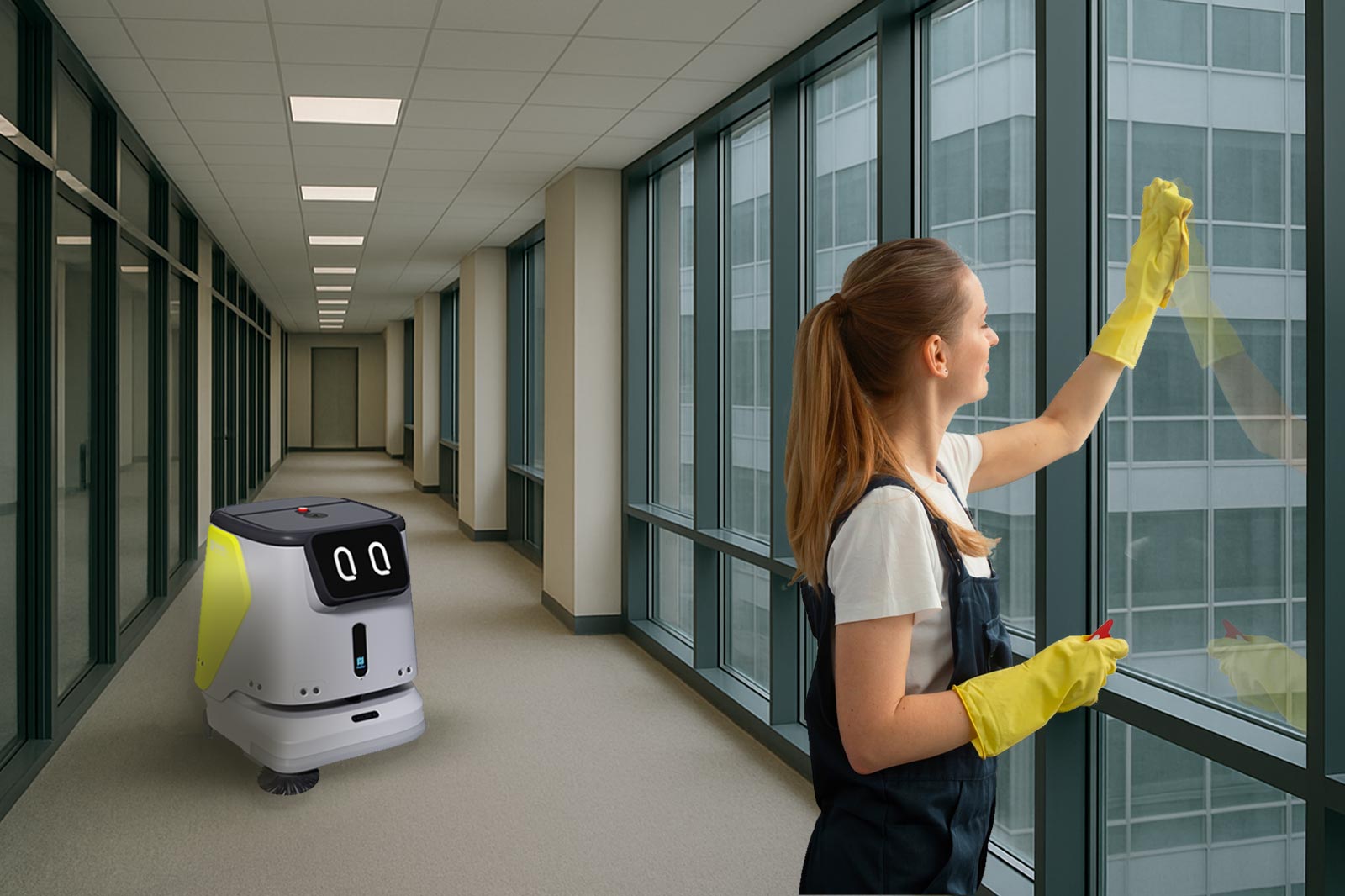
“Clanker.” Dubbed "frontrunner” for word of the summer by NPR, it’s a somewhat tongue-in-cheek derogatory term for robots and AI that has skyrocketed in popularity thanks to social media. Used both in jest and anger, the word reveals a growing anxiety among the general public about the effects of automation on our way of life. Service robots, such as food delivery robots, automated floor scrubbers, and inventory management robots, are frequent recipients of this dubious epithet on social media. And it’s obvious that when many people think about automation, they picture machines replacing people. But in reality, service robots are merely useful tools enabling workers to do more with the time they have each day.
August 18 2025
CLEANING ROBOT RUNDOWN
Which Floor Cleaning Robot is Right for Your Facility?
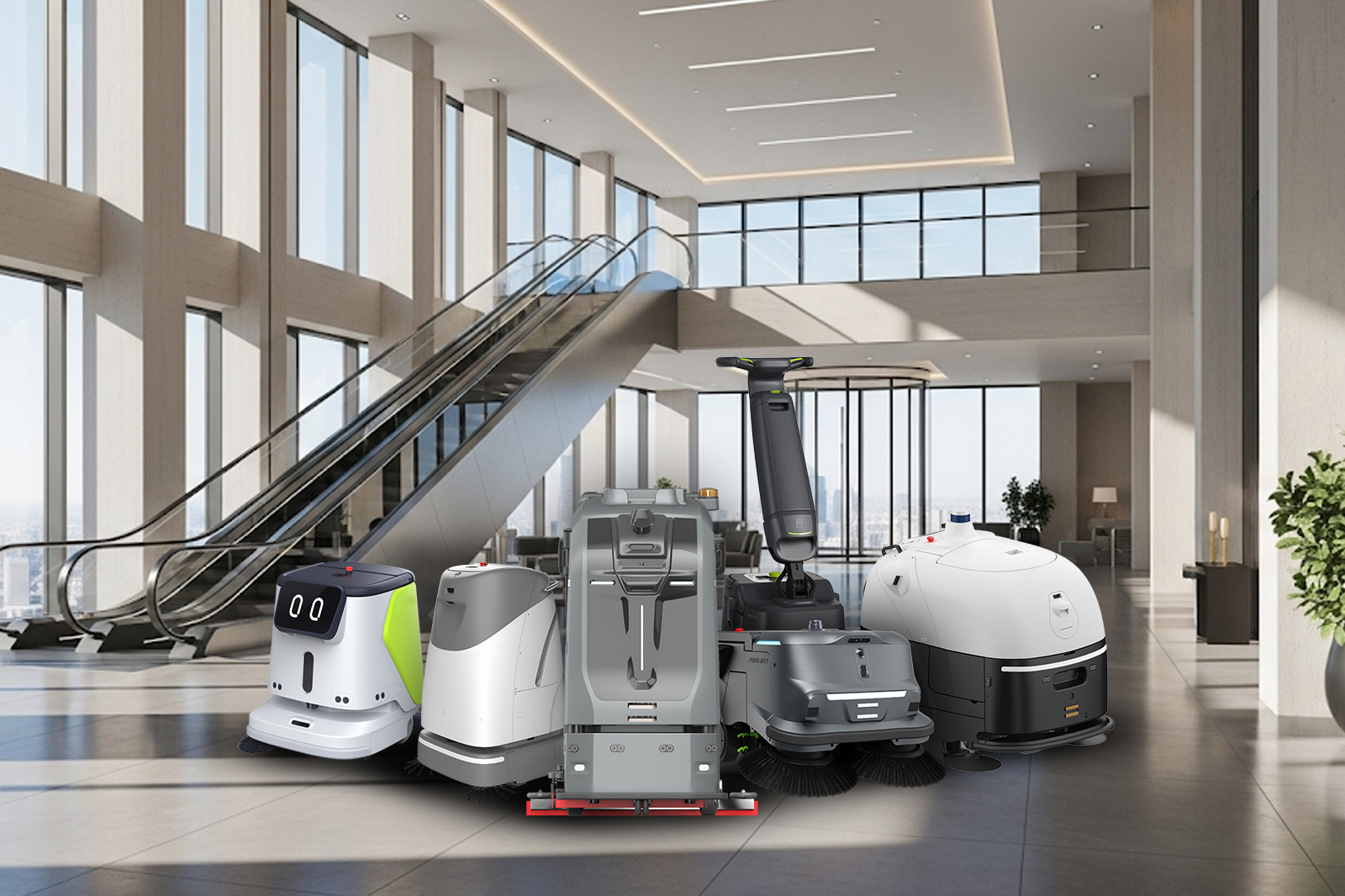
As more facilities shift toward automation, autonomous floor cleaning robots have stepped into the spotlight, and for good reason. They offer facilities of all sizes improved efficiency, real-time data, and consistent cleanliness with minimal human intervention. Whether you're managing a hospital, warehouse, school, or office building, choosing the right robot means matching the machine’s capabilities to your facility’s specific needs.
In this roundup, we’re highlighting the various units that make up the Pringle Robotics suite of autonomous floor cleaning robots—each tailored for different environments and workflows.
August 5 2025
SMARTER FLEET MANAGEMENT WITH PRINGLE NOC
How Pringle NOC Gives Facilities Real-Time Visibility and Control
.jpg)
Whether your facility is tasked with managing a fleet of autonomous service robots or a standalone unit, getting the best results isn’t only a question of having cutting-edge hardware. It also comes down to how well you can track, optimize, and support those machines to ensure peak performance, maximize ROI, and scale operations sustainably. That’s where Pringle NOC (Network Operations Center) comes in.
July 29 2025
NOW IS THE TIME TO ADOPT FLOOR CLEANING ROBOTS
Why Facilities Can No Longer Ignore the Efficiency Gains of These Impressive Machines

<Image Source: Freepik>
In a competitive landscape where operational efficiency can make or break an organization, facilities are under increasing pressure to do more with less. Labor shortages, rising costs, and growing cleanliness standards are pushing facility managers to explore smarter ways of working. Among the most effective solutions emerging today are autonomous floor cleaning robots. It’s no longer a question of if these robots should be adopted, but when. For many facilities, the answer is now.
July 8 2025
AMRS FOR INDUSTRIAL FACILITIES
Floor Cleaning and Internal Transport are Standout Benefits
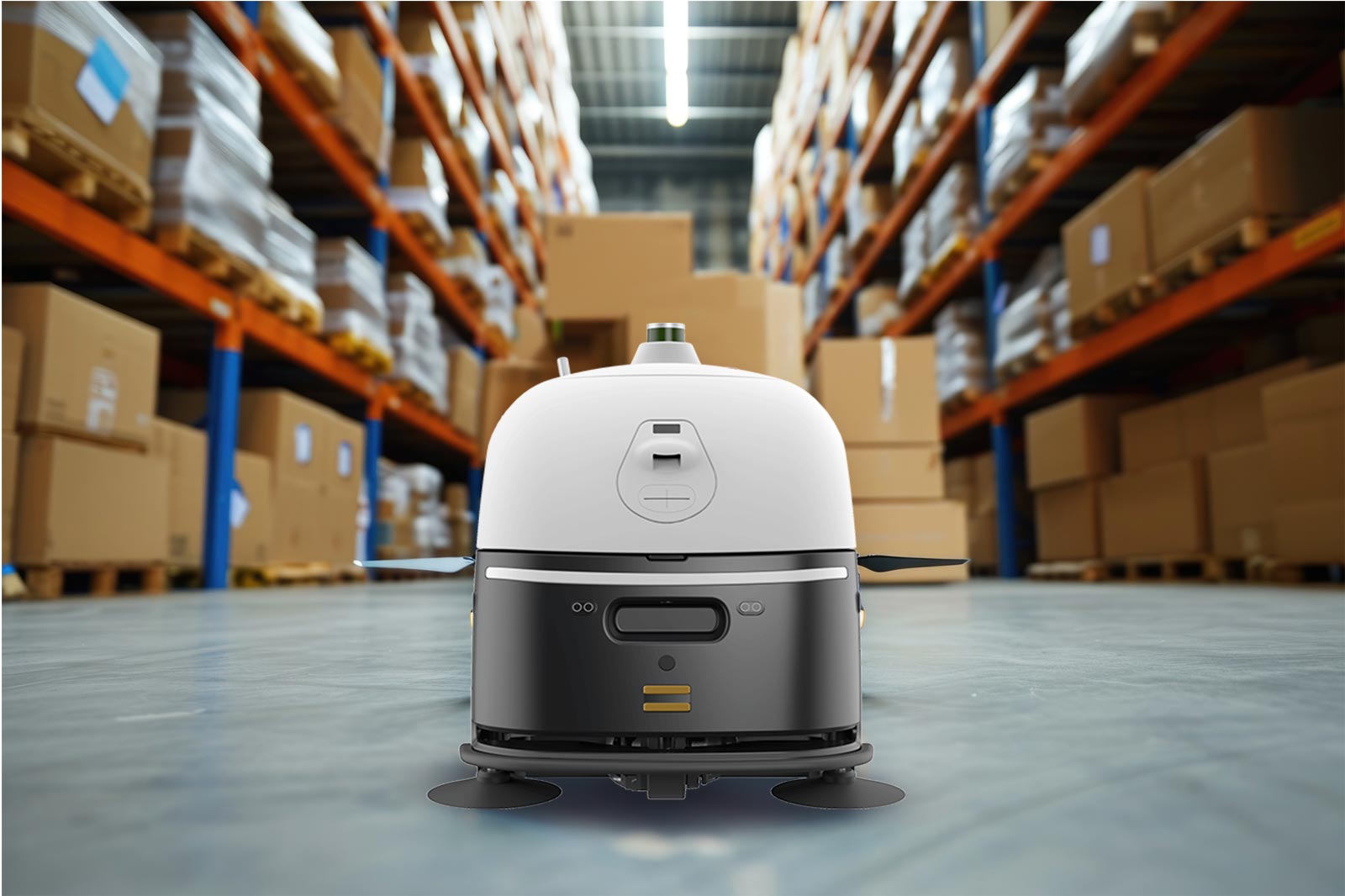
While robotics in manufacturing is nothing new, Autonomous Mobile Robots (AMRs) are quickly becoming essential players on the factory floor. From maintaining cleanliness in large warehouses to transporting materials across vast facilities, AMRs are changing how businesses think about operational efficiency.
June 25 2025
THE CLEAN SWEEP
How Athletic Facilities Can Win Big with Floor Cleaning Robots
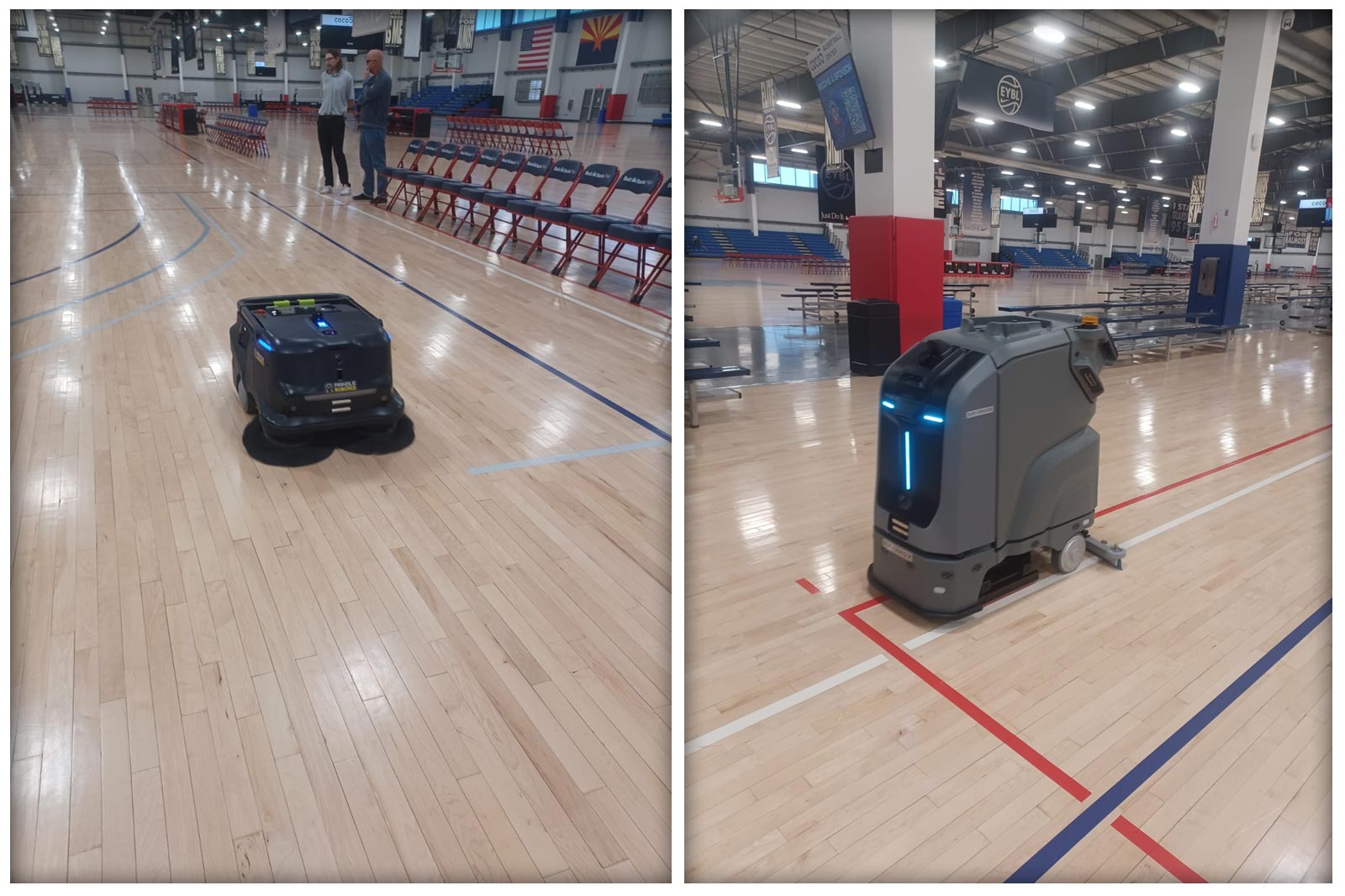
Indoor athletic facilities are at the heart of the booming sports and fitness industry, and serve as important training and gameplay centers for not only professional and collegiate sports, but youth, club and recreational sports as well. These indoor facilities see high traffic year round, and keeping the courts and playing surfaces clean is essential for safety, aesthetics, and overall user experience. But, as anyone in charge of these facilities knows, traditional cleaning methods often fall short.
June 10 2025
MT1 REVOLUTIONIZES FLOOR CLEANING FOR PREMIER TENNIS CLUB
“The MT1 Easily Pays for Itself in a Year”

Grand Rapids Racquet + Fitness in Grand Rapids, MI, is a premier tennis club that develops champion level athletes while also supporting a growing community of pickleball enthusiasts, racquetball lovers, and body builders. At such a renowned destination for indoor racquet sports in southwest Michigan, keeping the center’s 8 tennis courts, 4 pickleball courts, and 4 racquetball courts clean and ready for play is a top priority for Director of Tennis Operations, Tom Walker.
May 20 2025
THE SIX BIGGEST BENEFITS TO FACILITIES
The Real Impact of Automated Floor Cleaning
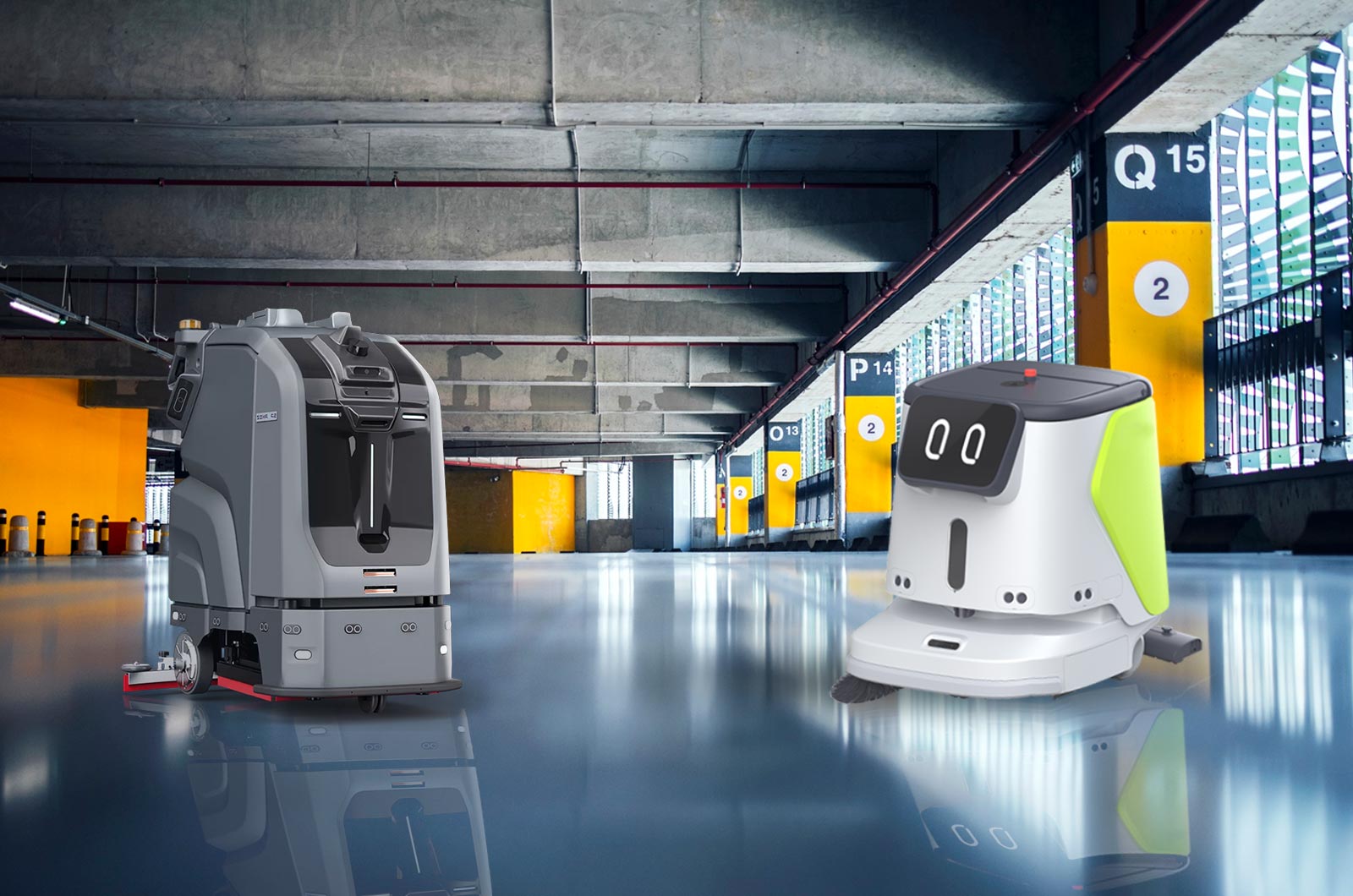
Earlier this month the facility management industry recognized World FM Day to “celebrate the important contributions and achievements of the facility management community, and the positive impact the profession has on our lives.” As automation has quickly swept through industry after industry, facilities management has also begun realizing the benefits of robotic assistance—particularly in the area of floor cleaning. Let’s take a look at six of the biggest benefits facilities can expect when integrating this helpful technology into their operations.
April 15 2025
MAINTENANCE IS YOUR ROBOT’S BEST FRIEND
Get the Most Out of Your Floor Cleaning Robot With Regular Maintenance
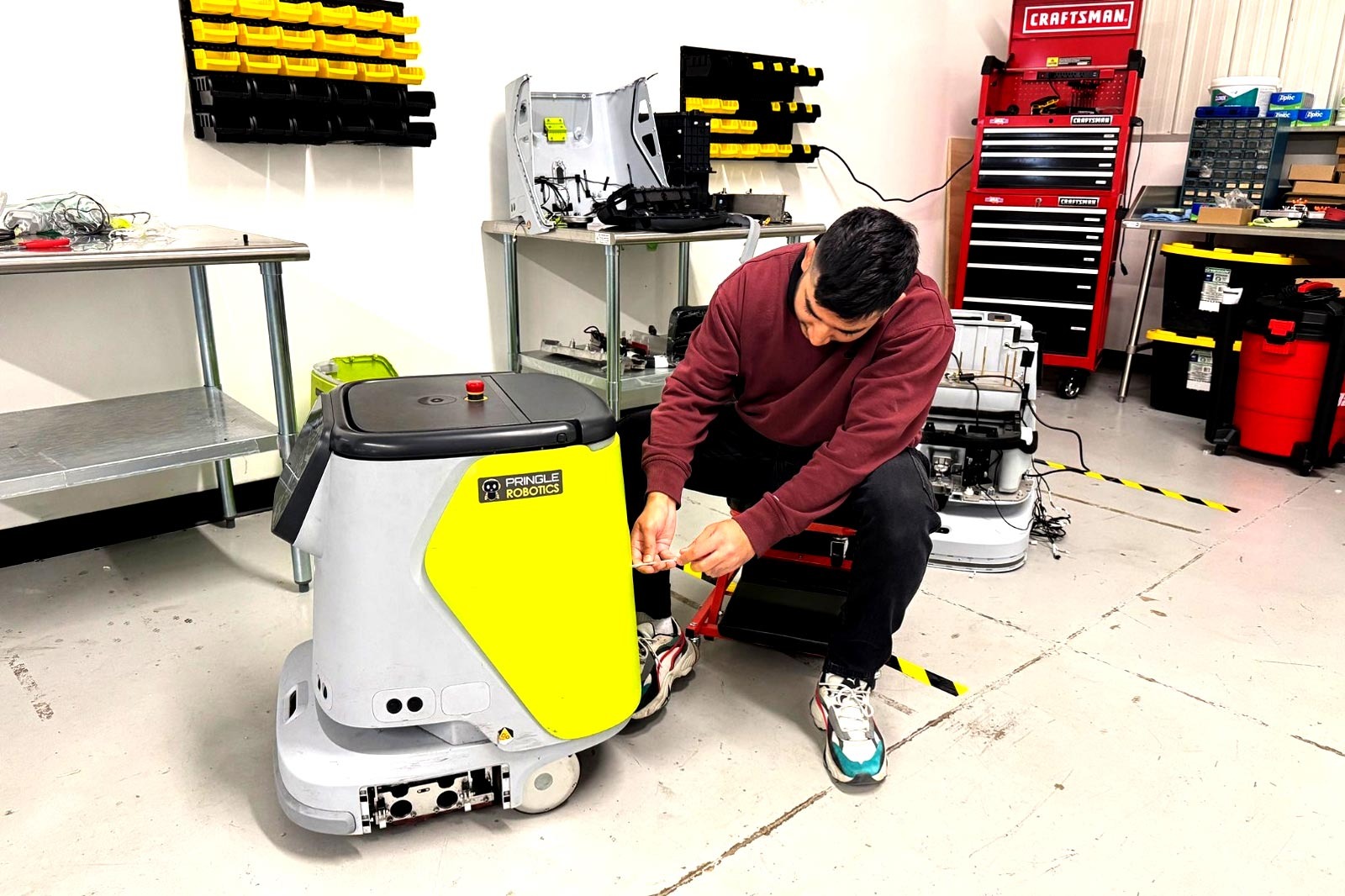
Autonomous floor cleaning robots are revolutionizing cleaning and maintenance for facilities across industries. By taking over repetitive floor cleaning for human workers, these machines improve facility cleanliness, increase efficiency, and even boost job satisfaction. But in order for facilities to get the most out of their floor cleaning robots, they need to be sure to not take them for granted. While these helpful machines do work autonomously, regular maintenance is the key to ensuring optimal performance and longevity. If you want to maximize your investment in robotic floor cleaners, a proactive maintenance strategy is not optional—it’s essential.
April 3 2025
HOW THEY DO IT
The Science Behind Autonomous Floor Cleaning Robots
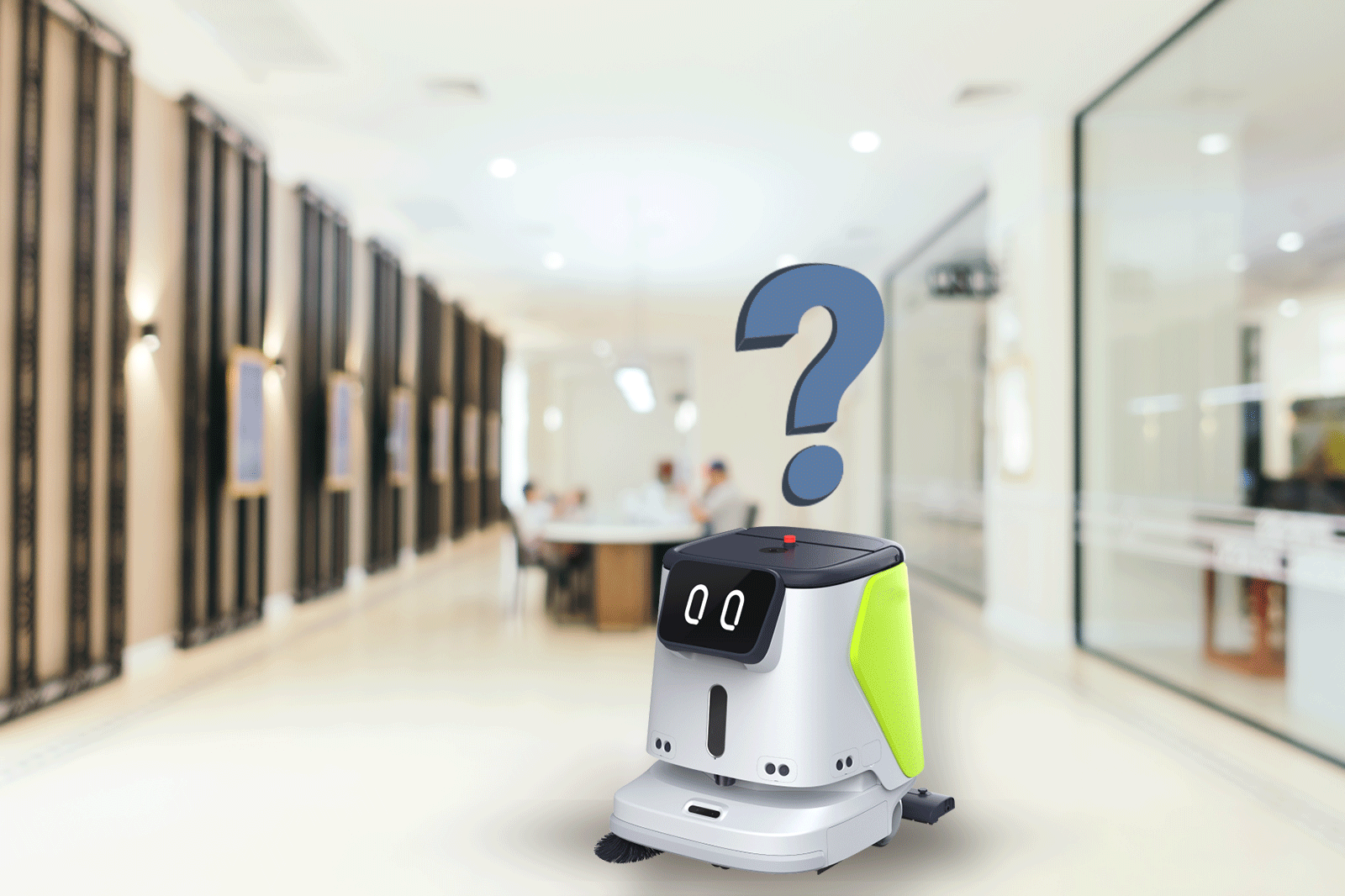
Floor cleaning robots are becoming a game changer for facilities, from warehouses and retail stores to hospitals and stadiums. But have you ever wondered how these autonomous machines manage to clean efficiently without missing a spot—or crashing into walls and furniture? It’s not magic; it’s technology. Let’s break down the science behind how floor cleaning robots navigate complex spaces, do the dirty work, and maximize efficiency for facilities that need to stay clean.
March 19 2025
AUTOMATION’S ROI IS REALLY ROL
Why Return on Labor is the Metric that Matters
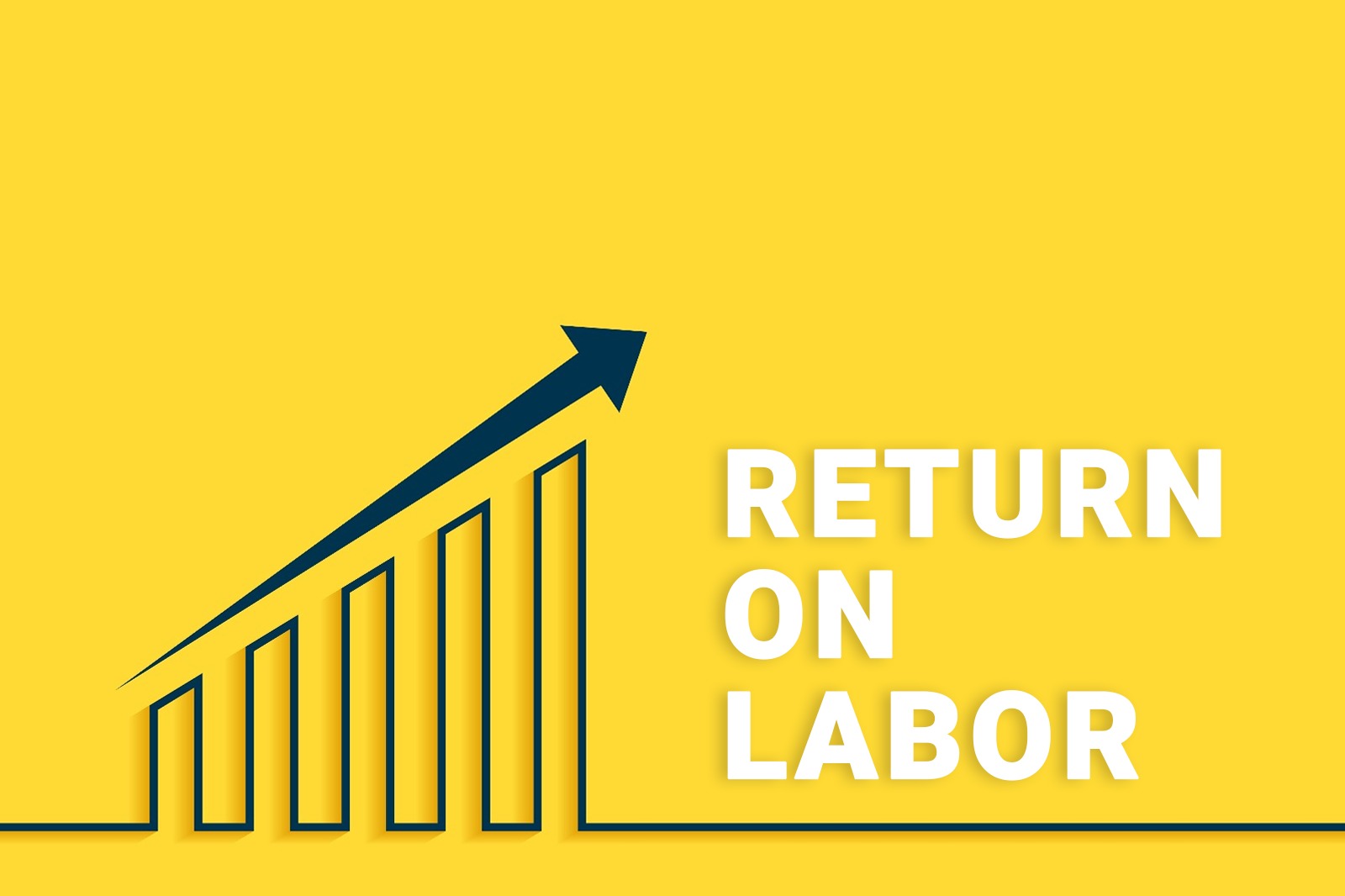
<Image Source: Starline on Freepik>
In the midst of inflation and fierce competition for workers, businesses are looking for ways to get more done with the resources they have. One of the biggest challenges? Labor. Finding, training, and retaining employees is a costly and time-consuming process, especially for roles that require repetitive, physically demanding tasks like cleaning and logistics. With automation creeping into every industry, business owners and facility managers are keen to see if automating some of these tasks can provide a solid ROI. But what if ROI is the wrong metric? Let’s take a look at the metric that really helps facilities do more with the staff they already have—Return on Labor.
March 12 2025
THE BEST ROBOTICS PARTNER IS ONE THAT DOESN’T SELL ROBOTS
Customer Success Demands So Much More

<Image souce: snowing on Freepik>
We know what you’re thinking. A robotics company that doesn’t sell robots? Ok, we’re being a bit tongue-in-cheek here. We do sell robots, as our many satisfied customers can attest. But we don’t only sell robots; or at least, the sale of a piece of machinery isn’t our primary focus. What is? Supporting our customers, and ensuring that their leap into automation sticks the landing.
March 4 2025
A NEW ANSWER TO LABOR SHORTAGES
Why Autonomous Cleaning is the Solution for Short-Staffed Facilities

<Image source: Freepik>
While the current unemployment rate remains low, hovering around 4%, hiring, staffing and retention within the janitorial field remain a key concern for facility managers. Factors such as an aging workforce, high turnover rates, and the broader impacts of the "Great Resignation" have exacerbated labor shortages in this essential field. This scarcity not only increases operational costs as wages rise in a bid to hire enough workers, but also compromises the quality and consistency of facility cleaning overall. In response to these challenges, facilities across the spectrum have begun embracing autonomous cleaning robots as a practical solution to bridge the labor gap and enhance operational efficiency.
February 18 2025
WAREHOUSES NEED CLEANING TOO
Automated Cleaning Protects Health, Safety and Property within Warehouses and Distribution Centers
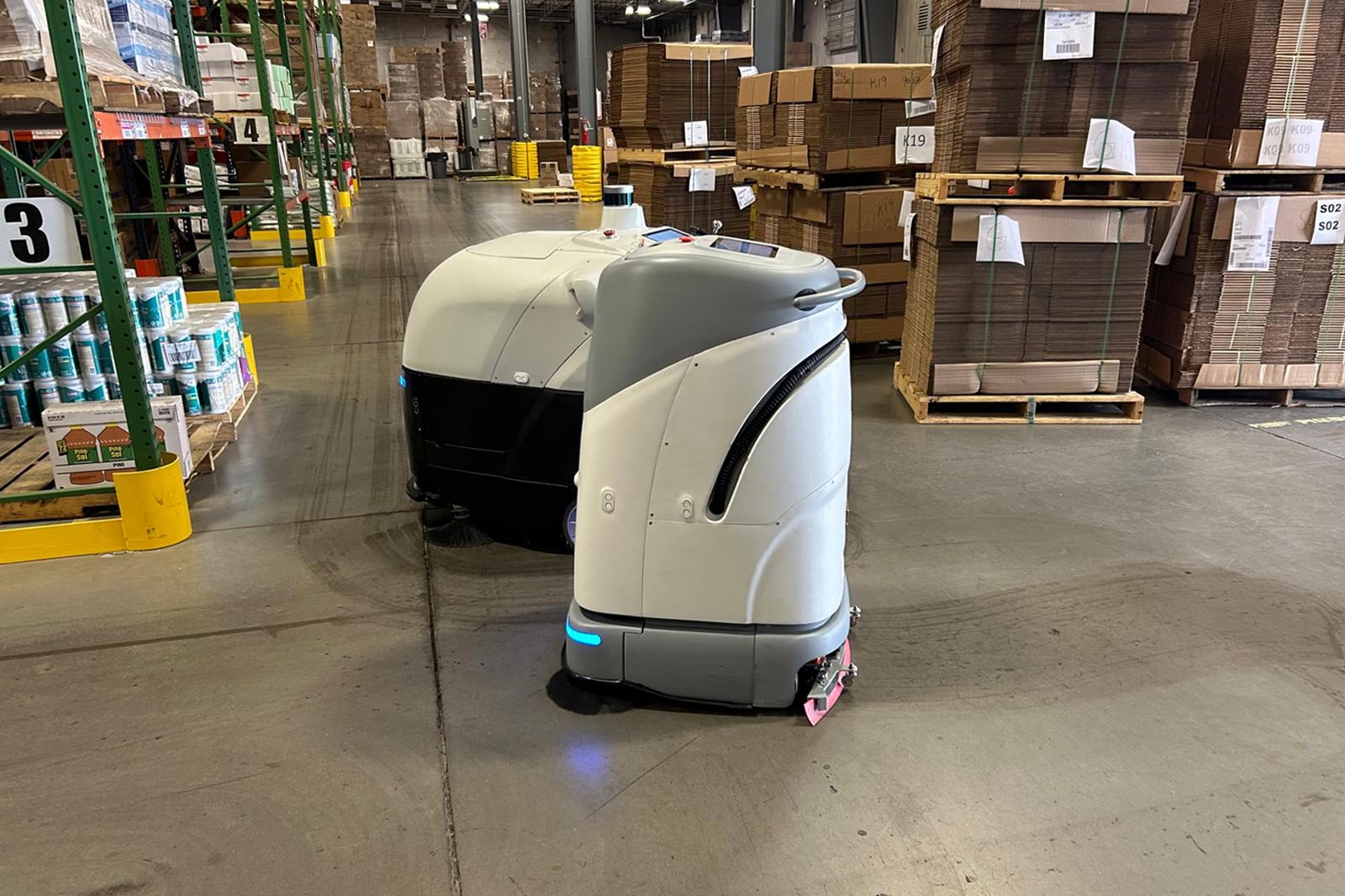
Warehouses and distribution centers are the backbone of modern supply chains, yet they face unique challenges in maintaining cleanliness. From managing high traffic in loading docks to dealing with dust and debris in storage and product handling areas, cleanliness is critical for operational efficiency, worker safety, and product integrity. A clean environment reduces accidents, improves air quality, and ensures compliance with industry regulations—factors that directly impact productivity and profitability. As these facilities grow larger and busier, adopting effective cleaning strategies is more important than ever to meet the demands of an increasingly fast-paced logistics industry.
February 5 2025
GOT THE WINTER BLUES?
These Facts About Improved Facility Management Through Robotic Automation Will Cheer You Up

<Image Source: Freepik>
Let’s face it—winter can be rough. The days are shorter, the weather’s dreary, and facility managers everywhere face some of the year’s toughest cleaning challenges during this season. That’s why we’re lightening up the mood with some good news to ponder during these winter doldrums. Robotic automation is transforming facility management, making operations more efficient, cost-effective, and less stressful. If the thought of overseeing facility cleaning operations amidst snow and slush doesn’t warm your winter spirit, these fun and informative facts will!
January 29 2025
SUPPORT MAKES ALL THE DIFFERENCE
A Chat With the Pringle Robotics Customer Support Team
These days, it seems like the world is awash with robots. While many of these robots work behind the scenes in industrial settings that the general public isn't privy to, smaller and more interactive service robots are cropping up in facilities that are used by the masses, such as hospitals, convenience stores, airports, and schools. According to the International Federation of Robotics, sales of professional service robots have increased by 30% worldwide since 2023, with the hospitality and healthcare sectors key among those sales.
